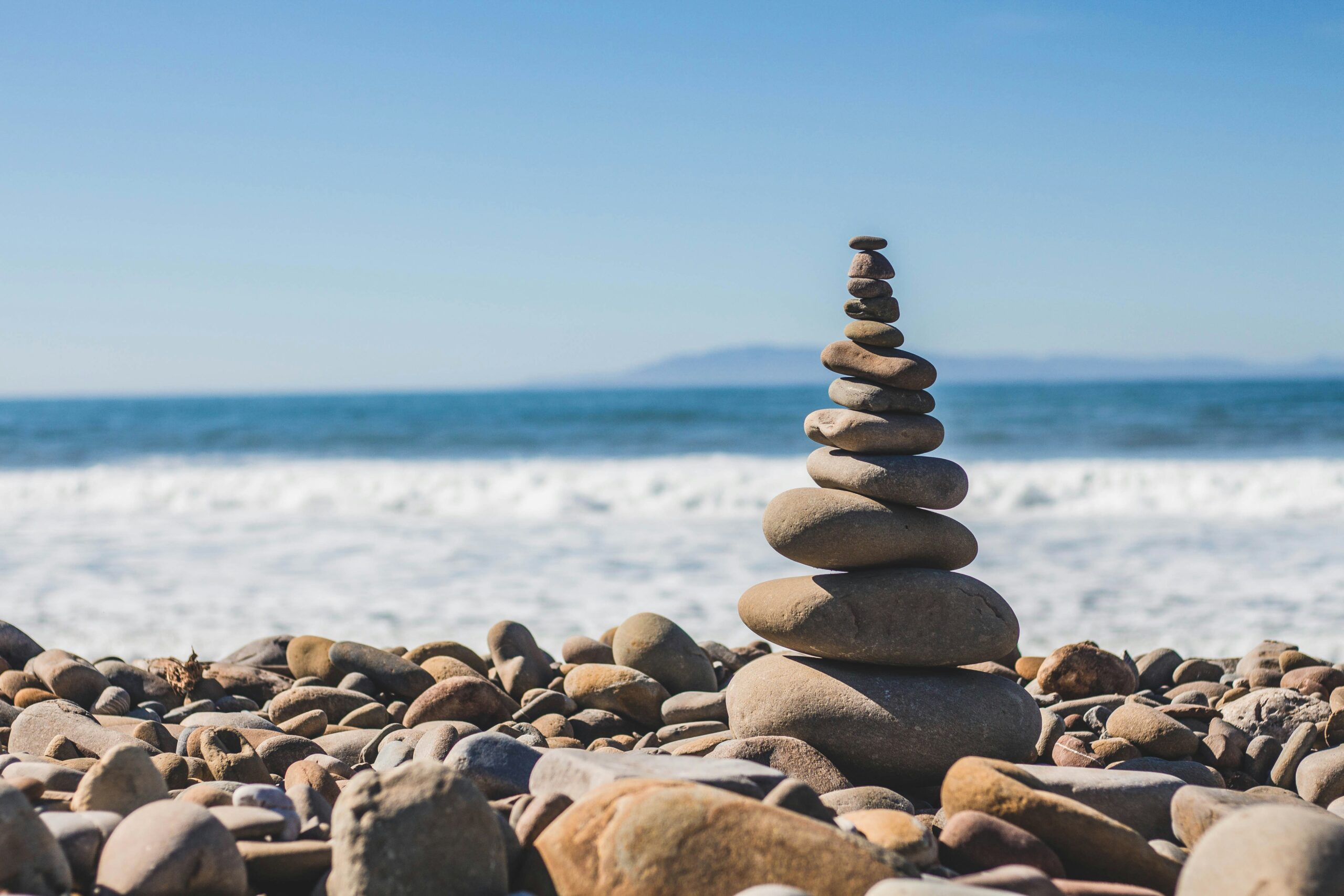Finding Balance Through Self-Care
Achieving a sense of balance in life is essential for overall well-being and happiness. In today’s fast-paced world, it can be challenging to juggle various responsibilities and commitments while also taking care of ourselves. However, finding balance is not only possible but crucial for maintaining mental, emotional, and physical health. Moreover, striking a balance involves recognizing and prioritizing what matters most to us, whether it’s work, relationships, self-care, or personal passions.
Furthermore, balance looks different for everyone, as it depends on individual preferences, values, and circumstances. Additionally, finding balance requires mindful attention and intentional effort to allocate time and energy to different areas of our lives. Further, it’s about learning to say no to things that drain us and yes to activities that nourish and fulfil us. As a matter of fact, balance is not a static state but an ongoing process of adjustment and recalibration. In other words, it’s about continuously assessing and readjusting our priorities and commitments to align with our values and goals.
Not to mention, achieving balance can lead to greater overall satisfaction and fulfillment in life. For instance, when we prioritize self-care and make time for activities that bring us joy, we feel more energized and resilient to face life’s challenges. In addition, when we invest in nurturing relationships and pursuing our passions, we experience deeper connections and a sense of purpose. Altogether, finding balance is about creating a life that feels harmonious and fulfilling, where we can thrive and flourish in all aspects of our being.
Prioritizing Self-Care
Prioritizing self-care is essential for maintaining overall well-being and preventing burnout. By making self-care a priority, we can better manage stress, improve our mood, and enhance our physical health. Setting boundaries is an important aspect of self-care. By establishing clear boundaries around our time, energy, and resources, we can prevent overextending ourselves and ensure that we have the capacity to meet our own needs.
Additionally, practicing mindfulness is another powerful self-care strategy. Mindfulness involves paying attention to the present moment without judgment, which can help us reduce stress and increase our ability to cope with challenges. Additionally, engaging in activities that bring us joy is a fundamental aspect of self-care. Whether it’s spending time outdoors, practicing a hobby, or simply relaxing with a good book, making time for activities that nourish our soul is essential for maintaining balance in our lives.
Nurturing Relationships
Nurturing meaningful relationships is another key component of finding balance in life. Social connections play a significant role in our mental and emotional well-being, and investing in relationships can bring immense benefits. Active listening is a crucial skill for building and maintaining meaningful connections with others. By truly listening to others and showing empathy and understanding, we can strengthen our relationships and foster deeper connections.
Expressing gratitude is another important aspect of nurturing relationships. Taking the time to express appreciation for the people in our lives can strengthen bonds and enhance our sense of connection. Additionally, setting aside dedicated time for loved ones is essential for maintaining healthy relationships. Whether it’s scheduling regular date nights with a partner or planning family outings, prioritizing quality time with loved ones can help us feel more fulfilled and supported.
Pursuing Passion and Purpose
Pursuing our passions and finding purpose in life is an essential component of achieving balance and fulfilment. Engaging in activities that align with our personal values and interests can bring a sense of meaning and satisfaction to our lives. Prioritizing activities that bring us joy and fulfilment is crucial for maintaining balance and happiness. Whether it’s pursuing a creative hobby, volunteering for a cause we care about, or exploring new interests, making time for activities that bring us joy is essential for overall well-being.
Moreover, setting achievable goals is another important aspect of pursuing passion and purpose. By setting realistic and attainable goals, we can stay motivated and focused on our aspirations. Additionally, making time for creative pursuits can help us tap into our inner creativity and express ourselves in meaningful ways.
Managing Responsibilities
Managing responsibilities is an inevitable part of life, but finding balance requires us to effectively manage our commitments and obligations. Balancing work, family, and other commitments requires careful prioritization and time management. Setting realistic goals is essential for managing responsibilities effectively. By breaking tasks down into manageable steps and setting achievable deadlines, we can avoid feeling overwhelmed and stay on track with our responsibilities. Delegating tasks when possible is another important strategy for managing responsibilities. Learning to delegate tasks to others can help us free up time and mental energy to focus on our most important priorities.
Additionally, learning to say no to non-essential commitments is crucial for maintaining balance and preventing burnout. Saying no can be challenging, but it’s essential for protecting our time and energy and ensuring that we have the capacity to meet our own needs.
Embracing Flexibility and Adaptability
Embracing flexibility and adaptability is essential for finding balance in an ever-changing world. Recognizing that balance is not a static state but an ongoing process of adjustment and recalibration can help us navigate life’s ups and downs with greater ease. Remaining open to adjusting our priorities and commitments as needed is essential for maintaining balance and resilience in the face of change.
Especially, practicing self-compassion during times of imbalance is also crucial for maintaining mental and emotional well-being. Being kind to ourselves and recognizing that it’s okay to have periods of imbalance can help us navigate challenging times with greater ease. Seeking support when needed is another important aspect of embracing flexibility and adaptability. Whether it’s reaching out to friends or family for support, seeking professional help, or joining a support group, reaching out for help can provide valuable resources and assistance during difficult times.
Self-Care And Mental Health
The benefits of self-care for mental health are numerous and far-reaching. Prioritizing self-care not only helps us manage stress and prevent burnout but also promotes overall well-being and resilience. Engaging in activities that bring us joy and relaxation can have a profound impact on our mental and emotional state, helping us feel more balanced and grounded. Setting boundaries around our time and energy allows us to protect our mental and emotional resources, ensuring that we have the capacity to cope with life’s challenges. Additionally, practicing mindfulness and self-compassion fosters greater self-awareness and emotional regulation, empowering us to navigate difficult emotions with grace and resilience. Furthermore, self-care activities such as exercise, meditation, and spending time in nature have been shown to reduce symptoms of anxiety and depression, improving our overall mental health and quality of life.
Final Thoughts
In conclusion, finding balance in life is an ongoing journey that requires intentional effort and self-awareness. By prioritizing self-care, nurturing meaningful relationships, pursuing passion and purpose, managing responsibilities effectively, and embracing flexibility and adaptability, we can cultivate a more harmonious and fulfilling life. Remember that balance looks different for everyone, and it’s essential to honor our unique needs and priorities as we navigate life’s complexities. By incorporating these strategies into our daily lives, we can cultivate resilience, well-being, and a greater sense of fulfilment. Here’s to finding balance and thriving in all aspects of life!
Sources and Further Reading:
verywell health, “What Is Self-Care and Why Is It Important”
Harvard Business Review, “Don’t Feel Guilty for Prioritizing Yourself Over Work”
Psychology Today, “The Unselfish Art of Prioritizing Yourself”
Entrepreneur, “25 Tips for Having Meaningful Relationships”
Written with Support from ChatGPT by OpenAI
Photo Credit: Jeremy Thomas/unsplash.com

